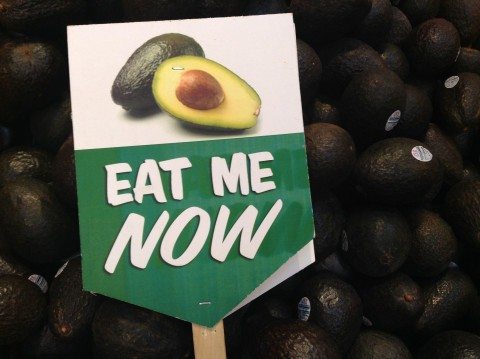 Nothing is easy anymore — like running and nutrition.
Nothing is easy anymore — like running and nutrition.
What makes it complicated is that there are differing and conflicting nutritional philosophies among elite ultra-runners, each claiming their way as the secret to their success. How can they all be right?
More importantly, how can the rest of us make sense of it all and identify an effective nutrition plan for ourselves?
In Part 1 of this series I covered the fruitarian diet, which is promoted in the ultra-running community by elite runner, Michael Arnstein.
I’ve also written about being a vegan ultra-runner.
In this article, I’m going to discuss another nutrition philosophy that is growing in popularity in the ultra-running community: the Low-Carb, High-Fat (LCHF) diet — sometimes called the ketogenic diet.
Carbohydrates And Running
Everyone knows carbohydrates are essential for ultra-distance runners. Right? This has been the conventional nutrition wisdom.
Carbohydrates are the body’s main source of fuel. At higher intensities, the energy demand by the muscles significantly increases and reliance on carbohydrates becomes even greater.
Research studies have consistently shown improved performance when carbohydrate is consumed both before and during endurance competitions.
Carbohydrates, specifically glucose, keep you going during a run. Glucose is converted into energy that contracts exercising muscles — the faster and longer you run, the more glucose you use up!
Not so fast.
There is an entirely different view that calls into question the common belief that carbs are the best source of energy for ultra-endurance runners.
Enter the low-carb, high-fat diet.
The Low Carb High Fat Diet Explained
The underlying premise of this nutritional philosophy is that human beings are natural endurance athletes. The idea is that we are physiologically set up to use fat as a fuel for endurance exercise.
The LCHF diet is designed to wean a person off carbohydrate dependency and re-train their body to use fat as a source of fuel. The process is often referred to as ketosis or fat adaptation.
The diet forces the body to burn fats rather than carbohydrates.
Normally, the carbohydrates contained in food are converted into glucose — which is then transported around the body and is particularly important in fueling brain function.
However, if there is very little carbohydrate in the diet, the liver converts fat into fatty acids and ketone bodies. The ketone bodies pass into the brain and replace glucose as an energy source.
The idea is that the use of fat as an energy source is superior for the runner who is running ultra distances.
Proponents say it is backed up by simple math. A typical person can store about 2,500 calories of carbohydrates but carries a reservoir of 50,000 from fat.
Before You Start A Low Carb High Fat Diet
It’s important that you do your due diligence in investigating this diet to determine if it is right for you.
I would suggest the following resources:
- There is a tremendous amount of scientific research related to the use of fat as a primary source of fuel.
- Jeff Volek and Stephen Phinney are 2 scientists who advocate a LCHF diet.
- Timothy Noakes, South African professor of exercise and sports science at the University of Cape Town, has run more than 70 marathons and ultramarathons and is the author of several books on exercise and diet. He has written and spoken much about the benefits of a low-carb lifestyle, and the LCHF diet for endurance athletes.
- Elite ultra-runner Timothy Olson is proof-positive as someone who follows and promotes a LCHF diet.
- Ultramarathon Champion Zach Bitter also follows and promotes this diet.
The LCHF diet doesn’t only appeal to ultra-runners, and many books about the ketogenic diet have been written for the general public.
Here are 2 great ones:
- Andreas Eenfeldt, MD wrote Low Carb, High Fat Food Revolution.
- The Ketogenic Cookbook: Nutritious Low-Carb, High-Fat Paleo Meals to Heal Your Body by Moore and Emmerich is a widely-known book.
Pros & Cons Of The Low Carb High Fat Diet
Not everyone is on the LCHF bandwagon. There are many with mixed thoughts and concerns about it.
Not everyone in the ultra-running community is convinced that the LCHF diet is advantageous. Some say it doesn’t work, while others believe it is detrimental.
There has also been some speculation that even the elite ultra-runners who claim to follow the LCHF diet… well… cheat a little (or a lot).
There are pros and cons to the LCHF diet. When it gets down to it, you’re going to have to see what works best for you as an ultra-runner.
Hopefully this article equips you with enough information to make the best choice for you. Even in a higher-carb running diet, it’s helpful to consider the foods in which you get your carbs.




